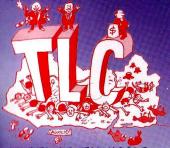Free trade, suicide clause and growing hunger in Latin America and the Caribbean
Radio Mundo Real | 23/10/2008
Free Trade, Suicide Clause and Growing Hunger in Latin America and the Caribbean

The free trade agreements that the US and the European Union “propose” to Latin America and the Caribbean include waiving sovereign control on food flows. The United Nations Food and Agriculture Organization admits that although food production increased in the region, the number of people suffering hunger also did.
A recent comparative study of GRAIN (available at http://www.grain.org/articles/?id=43) reveals this apparent “free trade paradox” as the big capitalists blocs like the US and the EU include in their proposals for global agreements.
This “suicide clause” through which the food flows fall almost without limitation under the category of inmune commodities to any kind of trade restrictions is in the wording of the agreements signed or being negotiated between Washington and the Latin American and Caribbean countries (but also with other continents, as the case of Morocco or Singapur). This sparks rejection by the governments and social organizations, while the European Union, learning from the experience of the US free trade process, rises its bid.
GRAIN’s report reads “one of the most well known effects of free trade agreements is the ruin of agrocultural ecosystems and local food, which cannot compete with food imports. The impossibility to control exports is just the other side of the coin and its result besides the ruin of the local agriculture is the impossibility to defend from its effects”.
The organization concludes that unlike what is said in the media and at a political level “the food crisis is not an accident on the way of global capitalism, but a result of it, and free trade agreements are a key instrument for that”.
A general wording of the “suicide clause” is: “...none of the Parties shall adopt or maintain any ban or restruction on imports of any goods of the other party or the export or sale to export any goods destined to the other party...”.
When signing the agreement including this clause - introduced by Washington during the first negotiations that gave birth to the World Trade Organization (WTO) - the governments are aware that food falls under the name “goods” and that by labeling it they are closing the possibilities of having a say as this regards. GRAIN says: “in the case of agreements with the US, there is a weak exception included in the WTO agreement, which is only applicable in case of ‘extreme shortage’ for a limited period of time and subject to the US approval, who is still pressuring to restrain the exception more and more”.
A decade ago, when Washington began to show a menu of free trade agreements in the western hemisphere, the negotiators quickly reckoned the risk to local sovereignties included in that clause, causing resistance at different levels. Although the threat is still there.
According to the study the EU is even more ambitious: “although under the agreements signed with Chile, Algeria and Egypt, exports can be restricted in the case of serious food shortage (subject to the EU approval) in the more recent agreements signed with Caribbean countries and Pacific countries, there is no longer an exception, neither in the EU proposals of agreement with Costa Rica nor with the Central African countries”.
More cereals, more people suffering hunger in Latin America and the Caribbean
Meanwhile, the July/ August newsletter of the Hunger Observatory of FAO’s Regional Office mentioned the huge increase of people suffering from hunger in the subcontinent as a result of the rise in the international food prices, while it showed an increase in the production of raw materials, like cereals.
Organization’s estimates show that six million people might have been added to the population suffering hunger in the region in 2007 as a result of the increase in the food prices. This would bring the overall population suffering hunger in Latin America and the Caribbean to 51 million, which represents a setback in the progress made between 1990 and 2005. According to FAO figures the malnourished population in the region during that period fell from 53 to 45 million.
“The problem is not that we have not made progress, but that we have not managed to continue the progress and we lost almost 15 years of efforts in just two years of rise in the food prices”, according to Jose Graziano da Silva, FAO’s regional representative for Latin America and the Caribbean.
At the same time, the FAO said in its annual report published in its Rome headquarters that Latin America, the Caribbean and tropical Africa represent the regions of the world that are prone to growing crops destined for agrofuel production.
The inference seems to lead to a fatal conclusion for the countries that sign free trade agreements: unable to control the tradable flow of raw materials and being in a region favorable for agriculture production - in which transnational corporations are interested - the Latin American and Caribbean countries will hardly be able to overcome the current hunger of their populations as long as the “decisions” around these issues will be made by agribusiness corporations (mainly from the US or the EU). Besides having econmic power, these corporations have the legal framework provided under Free Trade Agreements (such as the case of the US) or European global agreements.
Download (5:48 minutes, 3.99 MB)





